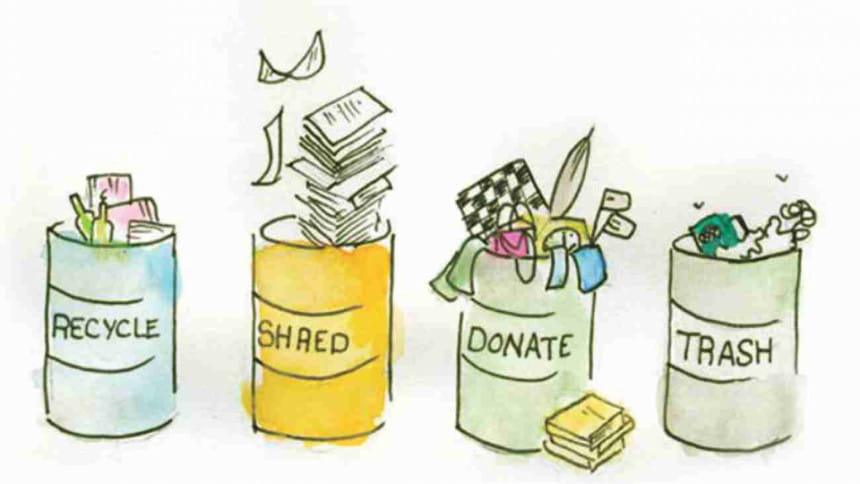Living with less

Although I was sort of familiar with the word "minimalism", it wasn't until I saw a video of a woman living out of a sleeping bag that I got intrigued by the idea of a minimalistic life. Recently, the trendy lifestyle that has been going on among a lot of people is one that is free of unnecessary possessions.
Needless to say, these people come from good socio-economic backgrounds, most of them from First World countries, and have the luxury to choose what they keep and what they throw. With well thought out colour-coded furniture and least number of patterned clothes that show off simplicity in a super intimidating way, minimalism has now become a form of art on social media.
I wanted to try out this lifestyle from a healthier perspective. Most minimalists claim that living with less can uplift people's moods and keep them away from the dark sides of consumerism. Primarily, I wanted to try the minimalist life for 5 days. I figured it would take a long time to even prepare for this lifestyle and so, I decided to just go through the steps of becoming a true minimalist. Here's how it went.
STEP 1
I thought I'd need to search a lot before actually finding stories about minimalists. But I was wrong. Apparently, there are a lot of people in the west living with less now, residing in cabins or vans with stuff that is absolutely essential for survival. I found lots of videos and articles on the internet that actually represent first-hand experience of minimalists. After reading through some, the first step I figured I'd need to take is decluttering. So on Day 1, I looked around in my room and made a list of what things were essential to me, what I have in excess, and what I haven't been using for at least 4 months. Turns out, I have a lot of denims in my cupboard even though I only go for the two pairs of black trousers I have. With a not-so-heavy heart, I kept away the rest of the pants and like magic, there was so much space in my wardrobe I could fit in three bears inside it.
I did the same with all my T-shirts, shirts, and traditional dresses. At the end of it all, I was left with less than 25 essential wears in my wardrobe - nothing extra. I did the same with toiletries, cosmetics, and books. Of course, the books were the hardest to keep away.
STEP 2
Step 2 is questioning whether a materialistic object is something I really need to survive 24 hours. This step made me ask the real question in life - do we need anything to survive at all? Jokes apart, I scoured my room and each time I came across something, I had to ask myself if I really needed it. The maximum amount of stuff that I didn't essentially was stationeries. That was surprising, but also sort of heart breaking to think that I have spent so much on stationeries when there are kids out there who would give anything for a pen, a paper and the ability to write the alphabet.
STEP 3
For step 3, I put away everything I didn't need and promised myself to not use them for a week at least. I tried to move away some furniture too. I kept the wardrobe, my bed and my study table. I had to give up my jar of chanachur and cashew nuts. I prepared very simple, less varied meals for the week and promised to not buy anything that I didn't need urgently. My room looked empty but in a way, it did sort of feel refreshing. I could feel more sunlight and wind coming into my room but I guess that's just science.
At the end of the experiment, it felt nice to have done something unusual. Although I didn't go through the real deal, I decluttered and organised my possessions and looked at them from a much wider perspective than I used to. I learned the value of things, sort of, but also how we give meaning to everything we own in ways that it becomes hard for us to let them go.
At the same time, it was sad to think that trying out the minimalist life is a luxury for me; it's something that I'm doing by choice - but there are millions of people out there who live the minimalist life every day, with one or two clothes wrapped around their bodies and no shelter over their heads. It's pleasing for the eyes to watch minimalists do their thing but it didn't necessarily make me any happier or more positive about my life. Having said all that, if done right, I think this internet-famous lifestyle can be good for people to learn and raise more awareness about poverty and homelessness.
Mashiat Lamisa believes in unicorns, flashlights and everything nice. Prove her wrong at [email protected]

 For all latest news, follow The Daily Star's Google News channel.
For all latest news, follow The Daily Star's Google News channel. 



Comments